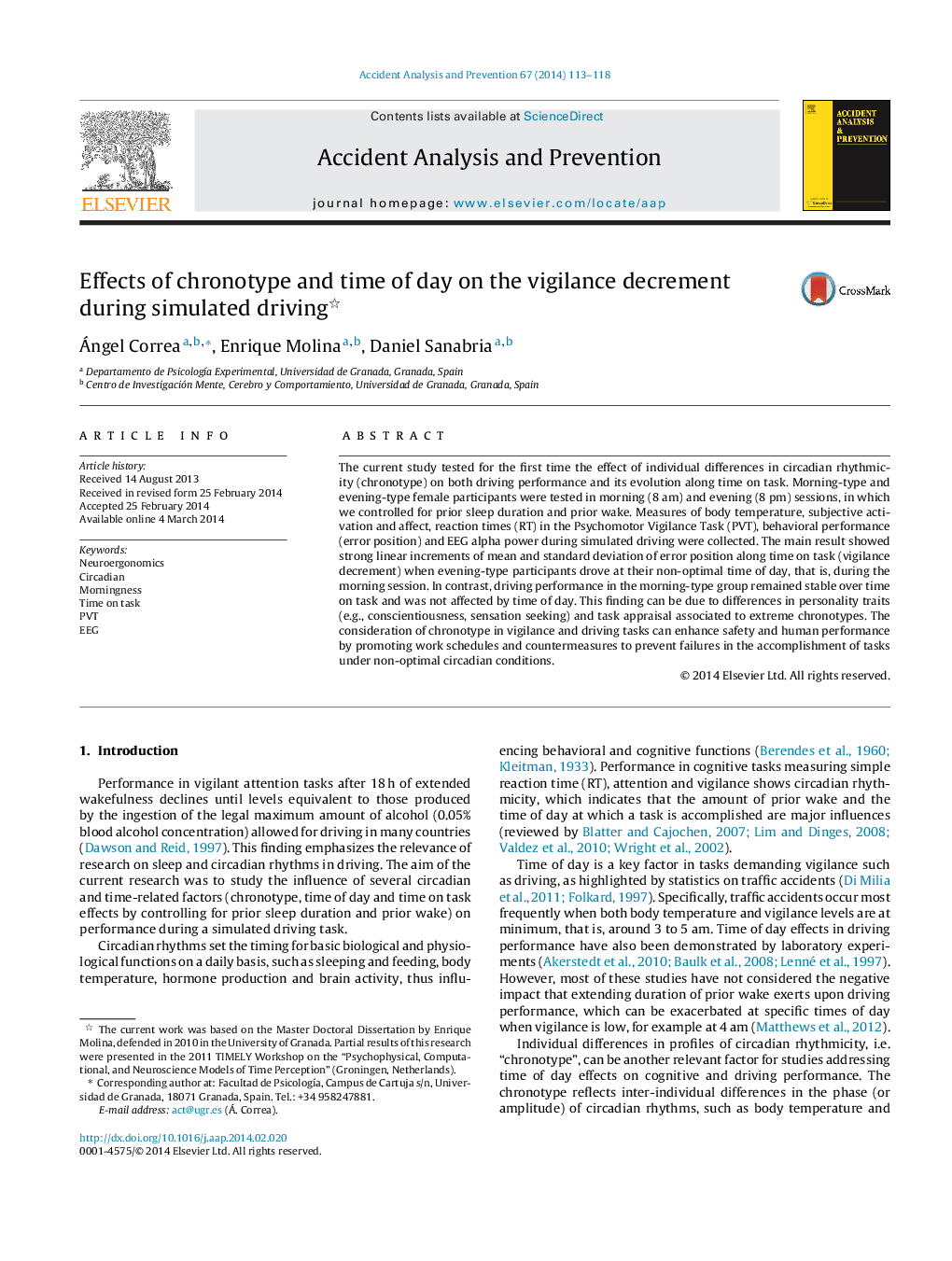| Article ID | Journal | Published Year | Pages | File Type |
|---|---|---|---|---|
| 572344 | Accident Analysis & Prevention | 2014 | 6 Pages |
Abstract
The current study tested for the first time the effect of individual differences in circadian rhythmicity (chronotype) on both driving performance and its evolution along time on task. Morning-type and evening-type female participants were tested in morning (8 am) and evening (8 pm) sessions, in which we controlled for prior sleep duration and prior wake. Measures of body temperature, subjective activation and affect, reaction times (RT) in the Psychomotor Vigilance Task (PVT), behavioral performance (error position) and EEG alpha power during simulated driving were collected. The main result showed strong linear increments of mean and standard deviation of error position along time on task (vigilance decrement) when evening-type participants drove at their non-optimal time of day, that is, during the morning session. In contrast, driving performance in the morning-type group remained stable over time on task and was not affected by time of day. This finding can be due to differences in personality traits (e.g., conscientiousness, sensation seeking) and task appraisal associated to extreme chronotypes. The consideration of chronotype in vigilance and driving tasks can enhance safety and human performance by promoting work schedules and countermeasures to prevent failures in the accomplishment of tasks under non-optimal circadian conditions.
Related Topics
Physical Sciences and Engineering
Chemical Engineering
Chemical Health and Safety
Authors
Ángel Correa, Enrique Molina, Daniel Sanabria,
